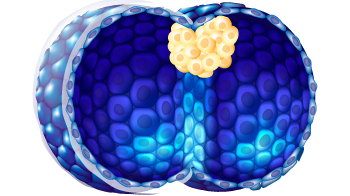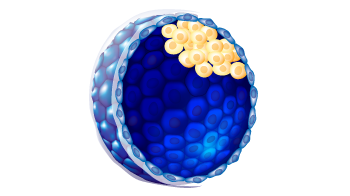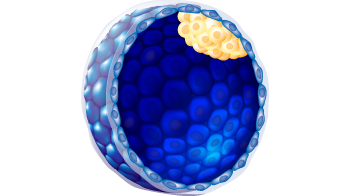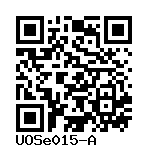MasterShef11, MstrShef11, MShef11
UOSe015-A
General
Donor Information
General Donor Information |
|
| Sex | male |
Phenotype and Disease related information (Donor) |
|
| Diseases | No disease was diagnosed.
|
| Family history | No |
| Is the medical history available upon request? | No |
| Is clinical information available? | No |
Karyotyping (Donor) |
|
| Has the donor karyotype been analysed? |
No
|
Other Genotyping (Donor) |
|
| Is there genome-wide genotyping or functional data available? |
No
|
External Databases (Donor) |
|
| BioSamples | SAMEA104627970 |
Ethics
| Was the embryo established purely for research purposes? | No |
| Have both parents consented to the use of the embryo for ESC derivation? | Yes |
| Has informed consent been obtained from the donor of the embryo/tissue from which the pluripotent stem cells have been derived? | Yes |
| Was the consent voluntarily given? | Yes |
| Has the donor been informed that participation will not directly influence their personal treatment? | Yes |
| Can you provide us with a copy of the Donor Information Sheet provided to the donor? | Yes |
| Do you (Depositor/Provider) hold the original Donor Consent Form? | No |
| If you do not hold the Donor Consent Form, do you know who does? | Yes |
| Alternatives to consent are available? | Yes |
| Alternatives to consent | |
| Alternative consent approval number | |
| Please indicate whether the data associated with the donated material has been pseudonymised or anonymised. | pseudonymised |
| Does consent explicitly allow the derivation of pluripotent stem cells? | Yes |
| * Does consent expressly prevent the derivation of pluripotent stem cells? | No |
| Does consent prevent CELLS DERIVED FROM THE DONATED BIOSAMPLE from being made available to researchers anywhere in the world? | No |
| How may genetic information associated with the cell line be accessed? | No information |
| Will the donor expect to receive financial benefit, beyond reasonable expenses, in return for donating the biosample? | No |
| Has a favourable opinion been obtained from a research ethics committee, or other ethics review panel, in relation to the Research Protocol including the consent provisions? | Yes |
| Name of accrediting authority involved? | National Research Ethics Service - North West London Rec-2 |
| Approval number | 05/Q0501/63 |
hESC Derivation
| Date of derivation | 2012-06-21 |
| Embryo stage | Blastula with ICM and Trophoblast |
| Supernumerary embryos from IVF treatment? |
Yes
Separation of research and IVF treatment?
Yes |
| PGD Embryo? |
No |
| Expansion status |
4
|
| ICM morphology |
B
|
| Trophectoderm morphology |
a
|
| ZP removal technique | Spontaneous Hatching |
| Cell isolation | Mechanical |
| Cell seeding | Embryo |
| Derived under xeno-free conditions? |
Yes |
| Derivation under GMP? |
Yes |
| Available as clinical grade? |
Yes |
Culture Conditions
| Surface coating | Laminin-511 then CellSTART |
| Feeder cells |
No |
| Passage method | Mechanically |
| O2 Concentration | 20 % |
| CO2 Concentration | 5 % |
| Medium |
Other medium:
Base medium: Nutristem
Main protein source: Human Serum Albumin Serum concentration: 5 % |
| Has Rock inhibitor (Y27632) been used at passage previously with this cell line? | No |
| Has Rock inhibitor (Y27632) been used at cryo previously with this cell line? | No |
| Has Rock inhibitor (Y27632) been used at thaw previously with this cell line? | No |
Characterisation
Analysis of Undifferentiated Cells
| Marker | Expressed | Immunostaining | RT-PCR | Flow Cytometry | Enzymatic Assay | Expression Profiles |
| SSEA-1 |
No |
|
|
|||
| SSEA-3 |
Yes |
|
|
|||
| SSEA-4 |
Yes |
|
||||
| TRA 1-60 |
Yes |
|
||||
| TRA 1-81 |
Yes |
|
|
|||
| NANOG |
Yes |
|
||||
| POU5F1 (OCT-4) |
Yes |
|
Differentiation Potency
In vitro spontaneous differentiation
| Marker | Expressed |
| alpha fetal protein |
Yes |
In vitro spontaneous differentiation
| Marker | Expressed |
| Beta Tubulin III |
Yes |
Microbiology / Virus Screening |
|
| Mycoplasma | Negative |
Certificate of Analysis |
|
| Is there a certificate of analysis available? |
Yes
Passage:
|
Genotyping
Karyotyping (Cell Line) |
|
| Has the cell line karyotype been analysed? |
Yes
46, XY
Passage number: P3
Karyotyping method:
G-Banding
|
Other Genotyping (Cell Line) |
|
| Is there genome-wide genotyping or functional data available? |
Yes
|


Login to share your feedback, experiences or results with the research community.